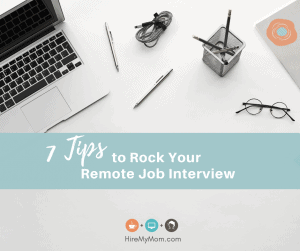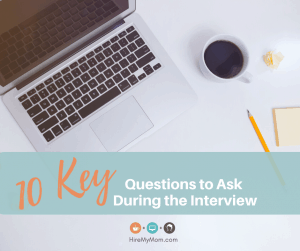How do I answer job interview questions?
You already know what you’re going to be asked:
What are your strengths? What are your weaknesses?
Why are you interested in this position?
Do you have experience with x, y, and z?
Every interview, you’re asked the same handful of questions. But, here’s the hardest one yet: do you know the best way to answer job interview questions?
Employers want to know that YOU know your stuff.
We recently participated in an interview for a marketing assistant position. When the job candidate was asked if they were familiar with Photoshop, they said yes, and then they defined what Photoshop is. While employers are happy to hear you know what is being discussed, they want to hear HOW you use it. Instead of defining it, explain that you’ve used Photoshop for many years to edit photos, specifically removing backgrounds and changing colors. Mention a couple of specific projects you’ve used it for.
On the flip side, if you have some of the qualifications mentioned in the job description but not all, let the job interviewer know that. Be honest, but tie it back into experience you DO have. Maybe you don’t have Photoshop experience. That’s fine! Maybe you have experience with Canva or Picsart instead. Let your potential employer know that you are happy to learn Photoshop, but in the meantime, you’ve used Canva or Picsart to create assets and do some photo editing within that online service.
Pay attention to who is in the interview.
Tailor your job interview answers based on who is in the interview with you. Are you interviewing for an accounting position, but a normal HR rep is conducting the interview? Or are you interviewing with the lead accountant? If it’s someone unfamiliar with the technical details of the position, make sure to not spend too much time on super technical answers, and don’t just use big buzzwords to sound fancy. For example, let them know you’ve used Quickbooks in the past to run revenue reports, but don’t go into a step-by-step process of how you ran those reports
If you find yourself with the lead accountant, take some time to get technical with answers of how past experiences apply to this new position; using the example above, mention that you’ve used Quickbooks to run reports for monthly and quarterly pre-tax revenue data points. This demonstrates that you really know what you’re talking about, and this can turn the job interview from an interview into a conversation. We’ve certainly found ourselves a time or two laughing and joking about crazy technical aspects of the job that we encounter daily.
The third option here is that perhaps you’re not sure what your interviewer’s level of comfort is with the topic at hand. Don’t be shy, ask them! Let them know you don’t want to waste their time with too vague or too specific of answers. Never be afraid to ask questions, and always try to ask a few of your own.
Employers ask strange questions out of the blue to see how you handle the unexpected.
Sometimes, you might find yourself being asked something that seems out of left field! One time we were asked, “What’s the most inspirational thing you experienced while traveling?” No, the job was not travel related!
Job interviews can be nerve wracking as is, so if you find yourself freezing up with a weird question, don’t worry about it. Let the interviewer know you weren’t expecting a question like that. If they admit it’s something along the lines of seeing how you handle unforeseen things, then bring the interview back to the job description and how your experience fits that. Give specific examples of how you’ve handled unexpected events. Then come back to the original question. If you can answer it, great! If not, just admit that’s a question you need to think on a little more.
A more tame version of this that we have encountered is that some employers have asked, “What are three values that matter the most to you in your life?” This question is a bit easier to tie into your past job experience, but it’s not a super common one. In one instance, an employer asked for the answer in a rapid response style to see what came to mind first. Answer honestly, then mention specific times you used those values in the workplace.
That all sounds great…but HOW do I answer job interview questions?
Let’s break it down:
- Give specific answers about past experiences.
- Bring the questions back to the experience you DO have that you bring to the table.
- Ask your own questions!
- Everyone is human. If you freeze up or stumble, admit it!
And if you need more resources on answering job interview questions, check out the 7 Tips to Rock Your Remote Job Interview. But really, when it all comes down to it, we are all human. If you get a weird question or your mind goes blank, let the interviewer know. We’ve all been there!
Before your interview, go through the list of qualifications the employer is seeking. Write down specific examples of how you’ve used those qualifications in the past, or come up with a list of things that are similar that you can mention instead if you don’t have exactly what’s mentioned in the job description. Having your notes nearby can help. Ask friends, family, even your kiddos to help interview you! In fact, kids say the darndest things (right?) so they might be a great way to prepare if they are old enough to help; it can even be a fun little game to play!
Now we want to know, what’s the WEIRDEST question you’ve been asked in a job interview? Reach out to tell us!




